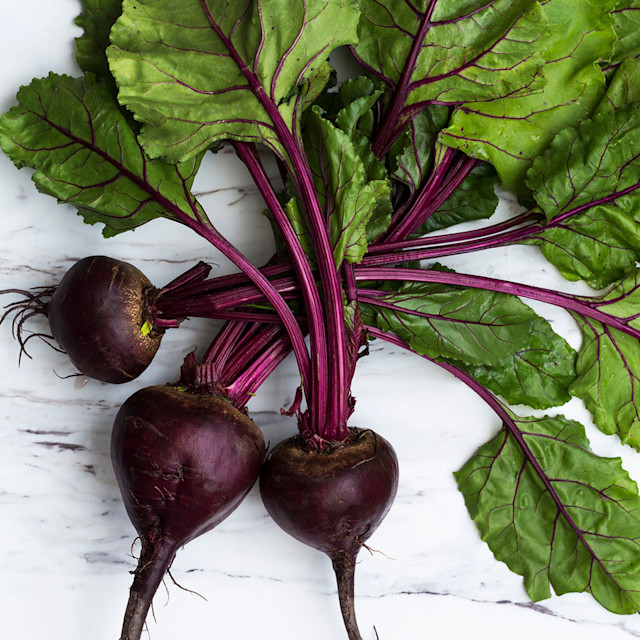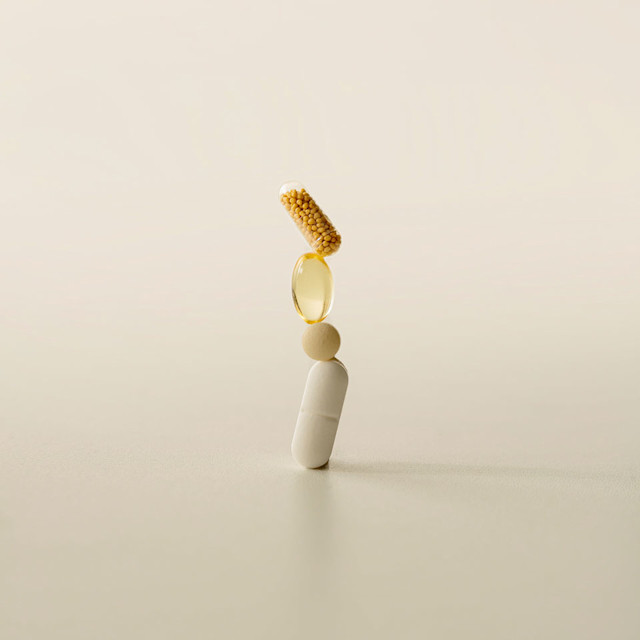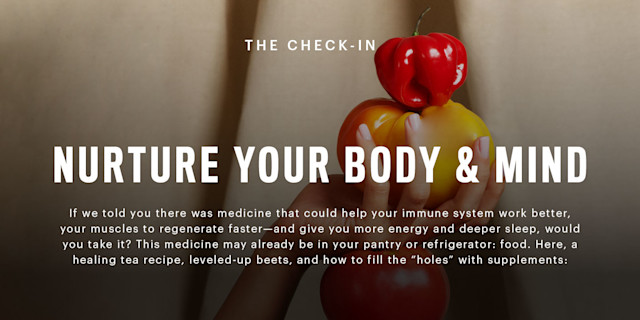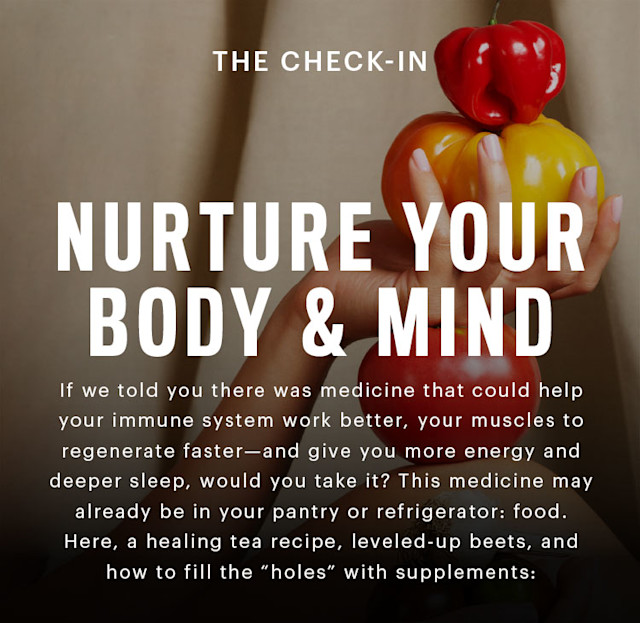
GET YOUR (BEET) GREENS.
In March 2016, New York City Mayor-elect Eric Adams woke up blind, the result of undiagnosed Type 2 diabetes. After he found research on the benefits of plant-based eating, he tried it, and shocked his doctor with blood work that showed that it was like he was never diabetic at all. His transformation inspired him to help all New Yorkers to turn their health around, something he’s doing in part through launching the Plant-Based Lifestyle Medicine Program in conjunction with NYC Health + Hospitals/Bellevue in addition to penning a book on the topic, Healthy At Last.
One of his go-to plant foods: beets—and their leaves. You’ve probably heard by now of studies showing beets can help you perform better in workouts. “Even if you don’t like beets, eat the leaves,” Adams says. “They’re loaded with vitamins and nutrients, including iron, protein, calcium, magnesium, zinc, and fiber. They’re low in fat, calories, and cholesterol. And, of course, they taste great.”

CURATE YOUR SUPPLEMENT STACK.
A supplement can “fill the holes of the sponge” when it comes to ensuring you’re getting all the nutrients you need from food, says Reshaunda Thornton, MS, RD, LD, CSSD, founder of BetterVessel Nutrition and a member of Equinox’s education advisory board. Of course, a doctor will diagnose specific health conditions and may determine that you need more vitamins or a higher number of nutrients from certain supplements to help with that particular ailment (and you should always talk to your doc before starting any new supplements). “But if you just want to make sure your nutrition is optimal, there are four different supplements I'd say would fit into the idea that food is medicine,” Thornton says. Here, her picks:
Vitamin D: “Especially as we go into winter, this ‘sunshine vitamin’ is important for bone health and our immune system.”
B Vitamins: “Vegetarians and vegans in particular may want to include this supplement which helps with brain and nerve functioning as well as energy levels, may prevent infections, and is good for your hormone and cholesterol levels.”
Omega-3s: “If you're not getting enough omega-3s from your diet (think: fish, walnuts), a supplement can help with inflammation, bone and joint health, and promoting healthy cholesterol and brain health.”
Probiotics: “Known for their digestive benefits, there's new research that shows that probiotics [may] help to improve mental health and depression levels.”

MAKE ANTIBACTERIAL TEA.
“All of the things that a person wants out of life can come from eating the right foods,” says Jeffrey Morrison, MD, Equinox Health Advisory Board member and founder of The Morrison Center in New York City. “Any chronic disease can and will be helped by starting off with a healthy nutritional plan.”
You can work with a functional medicine doctor or nutritionist for an individualized plan, but a couple “medicinal” foods Morrison recommends to almost everyone are garlic and cloves. “They do a really good job of keeping away bad bacteria and helping your immune system,” Morrison says. Raw garlic is better than cooked, he notes. You can make a clove tea by adding two or three sprigs to boiling water along with your tea bag of choice. Pro tip: It's one of the ingredients in chai tea.

